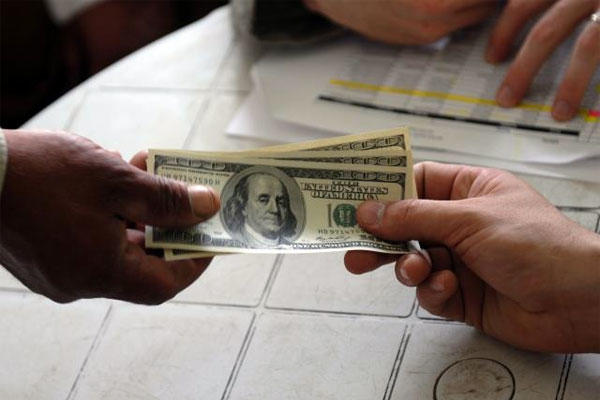One of the main criticisms during Brodie Van Wagenen's tenure as the Mets GM is his propensity to trade away pieces from the minor league system in order to sure up the major league roster. With the exception of the deal for J.D. Davis (think 2019, not 2020), these machinations have not worked very well. To hear Mets fans talk about it, they are alarmed at the bankrupting of the development system to obtain, in most part, mediocre players.
If you look down the roster of players currently on the Mets, there's an interesting trend that few point out. Pete Alonso, Jeff McNeil, Dom Smith, Brandon Nimmo, Michael Conforto, Amed Rosario, Andres Gimenez and Luis Guillorme are all from the Mets' supposedly barren minor league hierarchy. Throw in some of the pitchers, too, like Jacob deGrom, Seth Lugo, Jeurys Familia and even the seemingly lost Steven Matz. There has been fulfillment on that side of the roster, too.
So going forward, many were in disagreement with me that developing and enhancing the minor league system was a good idea. After all, isn't it easier simply to spend your way to the top? How well did that work out for the Yankees? For every acquisition that does well such as free agent Pedro Martinez or traded Johan Santana, there are countless other examples of the Jason Bay, Bobby Bonilla, Oliver Perez, Luis Castillo, Rick Porcello or Joe Foy types who didn't exactly spell success upon donning the blue and orange.
The point was raised that a successful team must have both a mix of homegrown, low-cost talent and name ballplayers of the All Star caliber who, unfortunately for the profit margin, come at a much higher cost. There is some truth to that sentiment, but there are also teams who seem to cultivate player after player from within and enjoy five plus years of low cost productivity. Look at teams like the Tampa Bay Rays, Houston Astros, San Diego Padres and Minnesota Twins. Now some of these ballclubs trade them away when they threaten to become too costly, while others embrace them long term. Both approaches can work, but instead of shopping at the scratched and dented section of the inventory, good teams know that you need to spend to get the best of the best.
Towards that end the Mets most certainly have spent for the likes of in-house solution Jacob deGrom and they're facing the same challenge with final-year-of-team-control Michael Conforto. Many of the other listed players are still in that accountant's heaven period of controlled cost.
Where the Mets have gone wrong during the Wilpon years is always going after the second tier type players who are costly but not quite as expensive as the better options out there, but still hamstring your budget for the annual cost you've associated with the second (or third) tier talent. Curtis Granderson was a player many people came to love but he had a very rough year one and still cost the Mets a significant $16 million per year average salary. Would the club have been better off spending a little more per season for fewer years to hit the same $64 million cost had they gone after a better caliber player?
Look at BVW's acquisitions the past few years in trades and free agency. Rick Porcello, Michael Wacha, Keon Broxton, Wilmer Font, DFA'd has-beens from other teams...and the trades have generally not been stellar either. This season Robinson Cano and Edwin Diaz performed as they had hoped, but at first this trade seemed like a total bust with no upside whatsoever.
So going forward what will be the Steve Cohen/Sandy Alderson approach to building the club from perennial loser into regular competitor? Is it the manager with the lineup pencil? Is it the poor performances from key players? Is it trying to turn rough trade into diamonds in the rough? Obviously things have to be done differently. The question no one knows for sure is how.




9 comments:
Just about the time I start to forget, the trauma of Keon Broxton resurfaces. LOL.
Whatever moves this team makes this off season, it needs to reduce its failed acquisition ratio.
Just what we needed: a player agent who becomes a first time GM who needs to (like our old friend Jeffy) prove he's the smartest guy in the room. Who exactly were we competing against for the likes of Lowrie and Familia for example reminds me of that 4 yr deal for Luis Castillo never did figure that one out anyway to your point we have get Smarter in organization construction going forward.
A few things come to mind:
(1) Stop building a team by using players playing out of position, particularly in centerfield. They need to obtain a true centerfielder.
(2) Good old-time fundamental baseball is important. Good baserunning, situational hitting, moving runners over, first to third on singles, hitting with runners in scoring postion. Make outs productive.
(3) Defense matters.
(4) Team speed matters. You can put up with a slow catcher (altho Ramos really clogged things up a bit too much), but overall speed puts pressure on the other team. Steal bases.
(5) Top tier and top dollar free agents are typically not the best way to go.
(6) Good baseball trades are fine, but trading young talent (#1 draft picks), for old players is probably not the best trade.
I think a big part is not knowing or valuing what you have here and trying to show everyone how much smart you are at finding players from other organizations. It made no sense giving up Blake Taylor for Jake Marisnick when similar players could have been signed to minor league deals with an invite to Spring Training (see Billy Hamilton)...and then you trade another prospect, Jordan Humphreys, when Marisnick gets hurt for a player you could have signed to a minor league deal, Billy Hamilton!
Remember 1969, well said.
Based on recent news, I hope the Mets don't get lured into the JT Realmuto sweepstakes.
Great player? Yes
Worth a 200 million dollar contract? No.......make that hell no!
As good as he's been, he will be in his early to mid 30's for that deal, which is usually not a good thing
for a catcher. Plus, the Mets actually have some talent in the lower minors, behind the plate.
I would rather find someone like the Rays did with Zunino, or the McCann fellow from the White Sox for a
shorter term (3 years) until the kids are ready.
Oh and before someone brings up TDA, NO ONE was shedding any tears at the time he was let go by the Mets and NO ONE could have seen what he is doing, coming at the point he was released. Not to mention, he is on his third team since the Mets cut bait with him......I don't get the self loathing going on with fan base OR the "blame" being placed on just the Mets for the transaction. The Dodgers and Rays also had him on their rosters, right? Why not pile on them for "letting him get away"?
OR, just wish TDA well and appreciate the fact that he is a good guy and he finally found a good run of health and consistency?
Mike, regarding TDA, I was on record saying that, with the very questionable Nido as Ramos’ back up in 2019, and starting catching being lowest % of 162 games played by the starter, what was the rush in sending TDA packing? He was rusty but finally had his arm repaired.
If we had a great back up, I would have understood. We had terrible back ups. Ramos played a lot, probably a little more than he should have. The Mets missed the playoffs in 2019 because they dumped TDA.
Rivera and Nido had 150 at bats and hit under .200. Huge and very avoidable mistake
Off topic, but RIP Joe Morgan. It's been a rough week or so with Bob Gibson and Whitey Ford preceding him in their passing.
Three deceased greats.
I did find it fitting that Chapman headhunted Brosseau, like Gibson did Agee, and Brosseau then beat Chapman with a homer to win that series and send muscleman Chapman home a loser. Justice served. In Gibson’s case, justice was served when Agee and Seaver led the Mets to the next year’s world championship in 1969.
Post a Comment